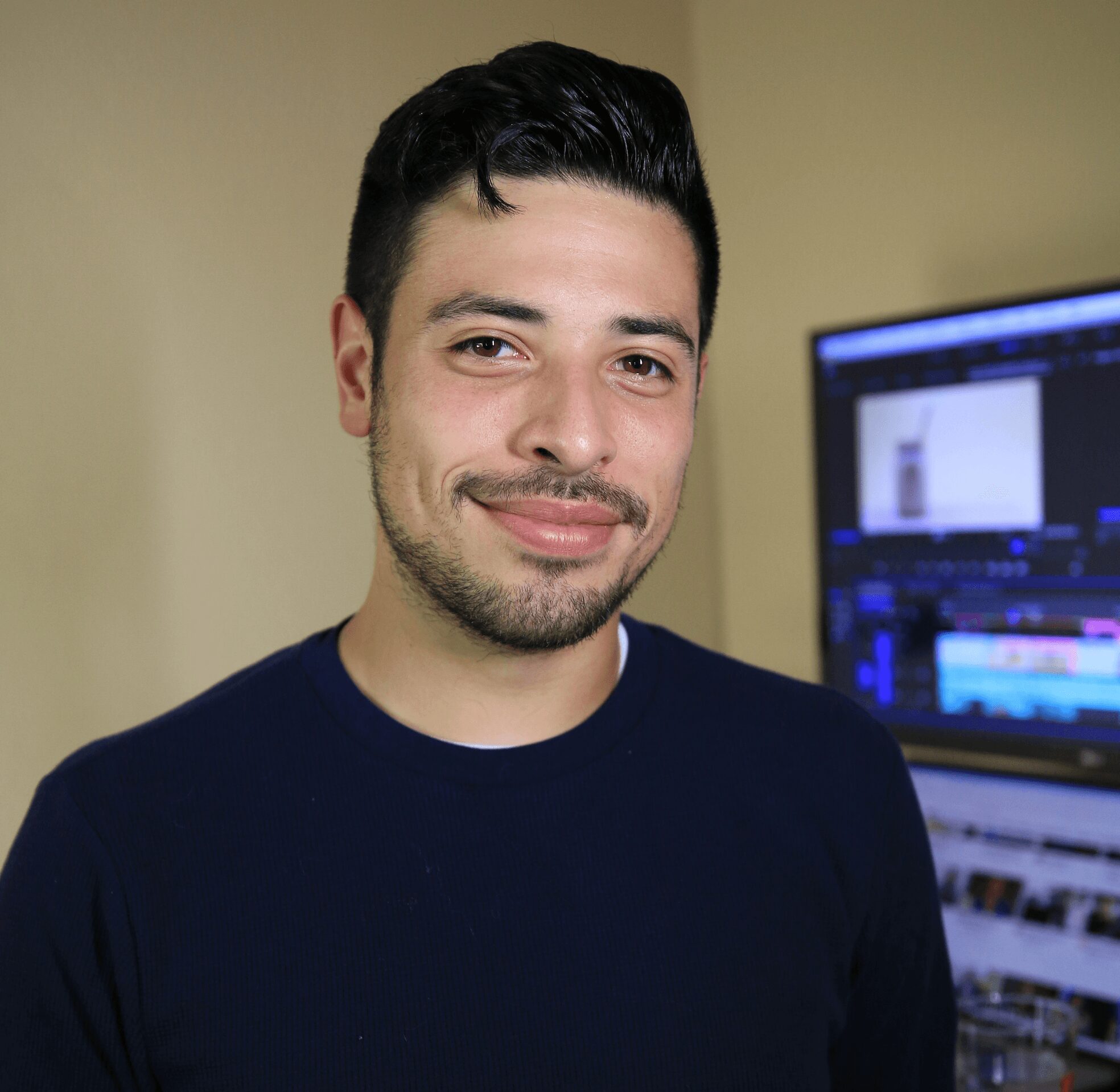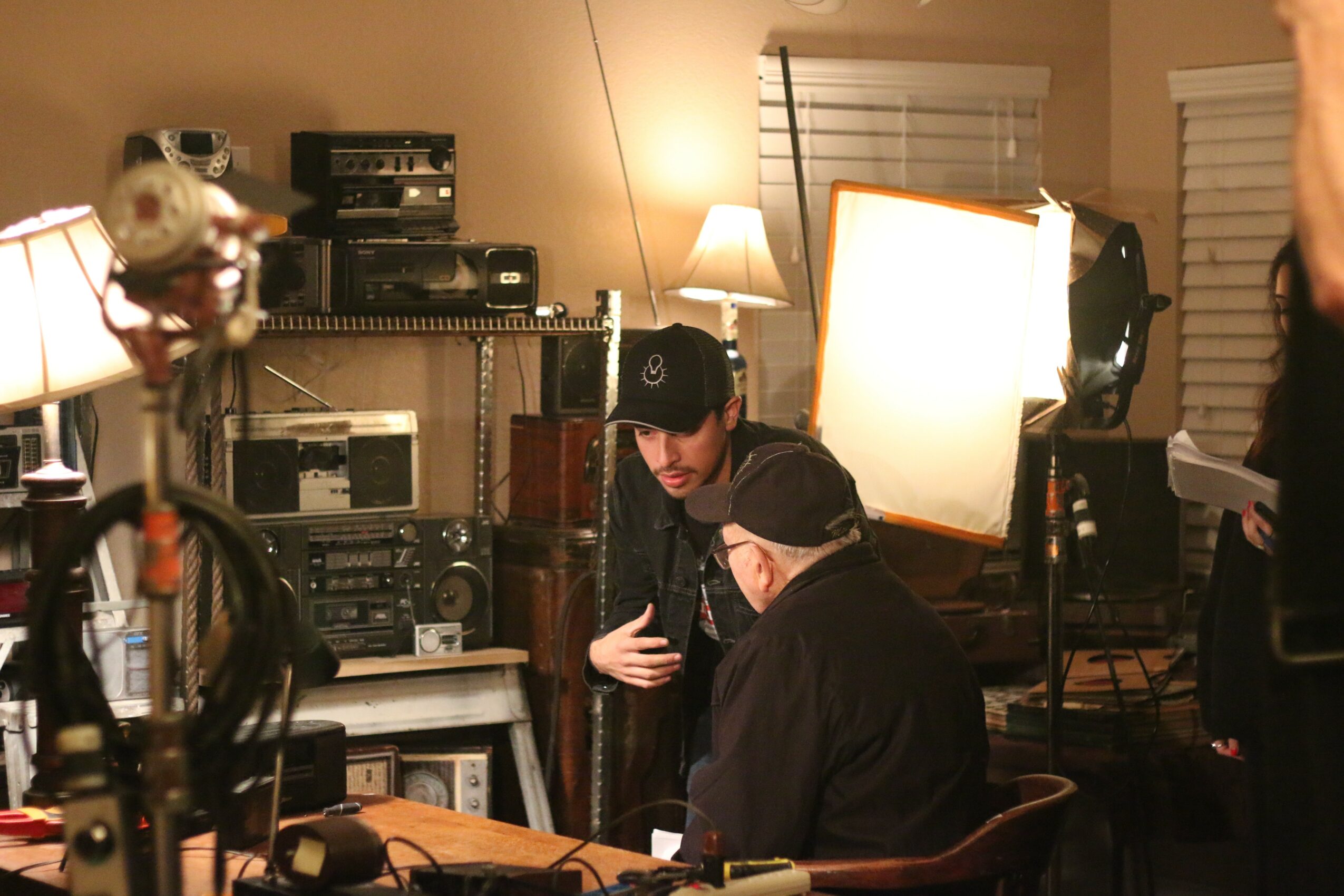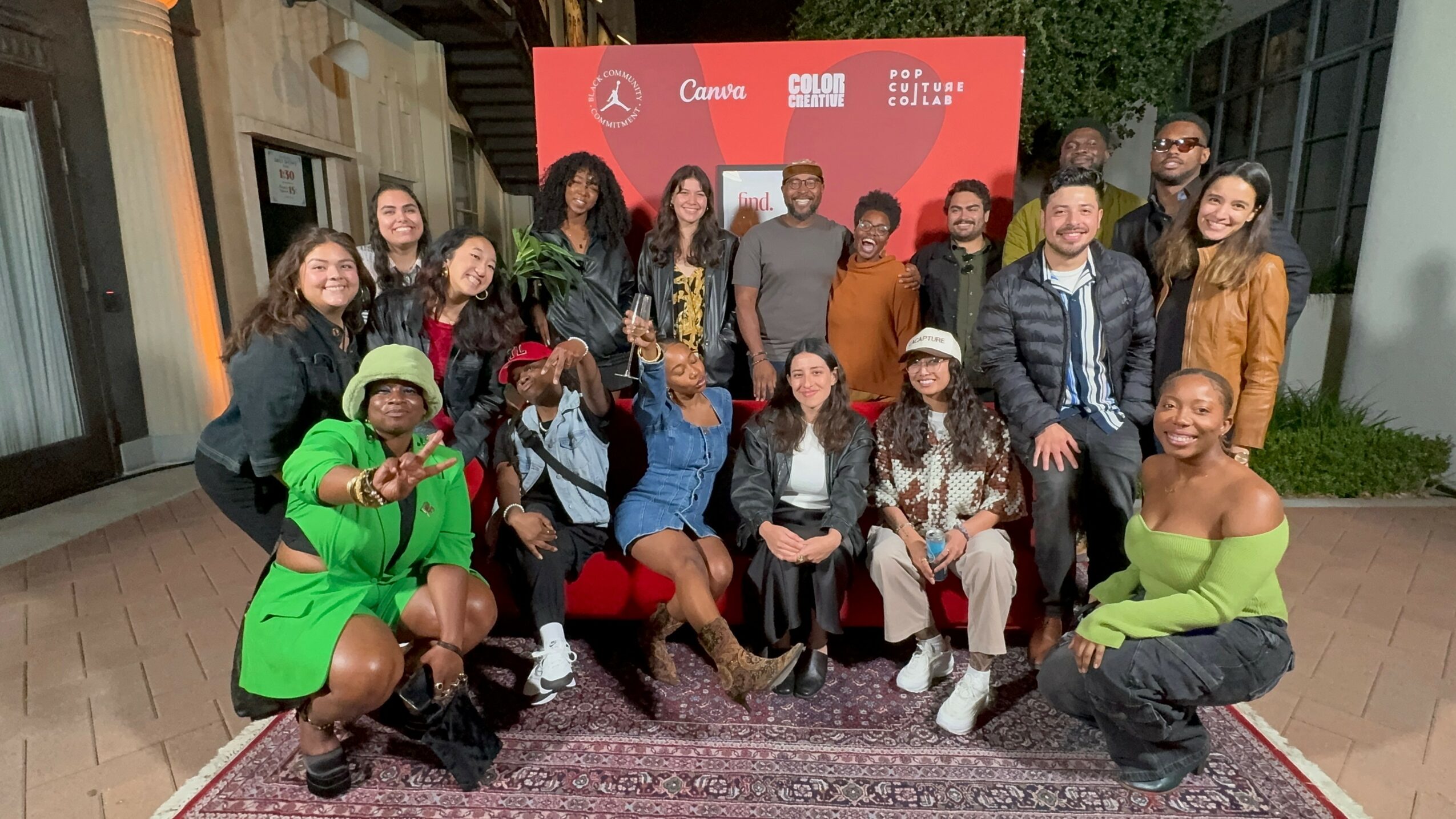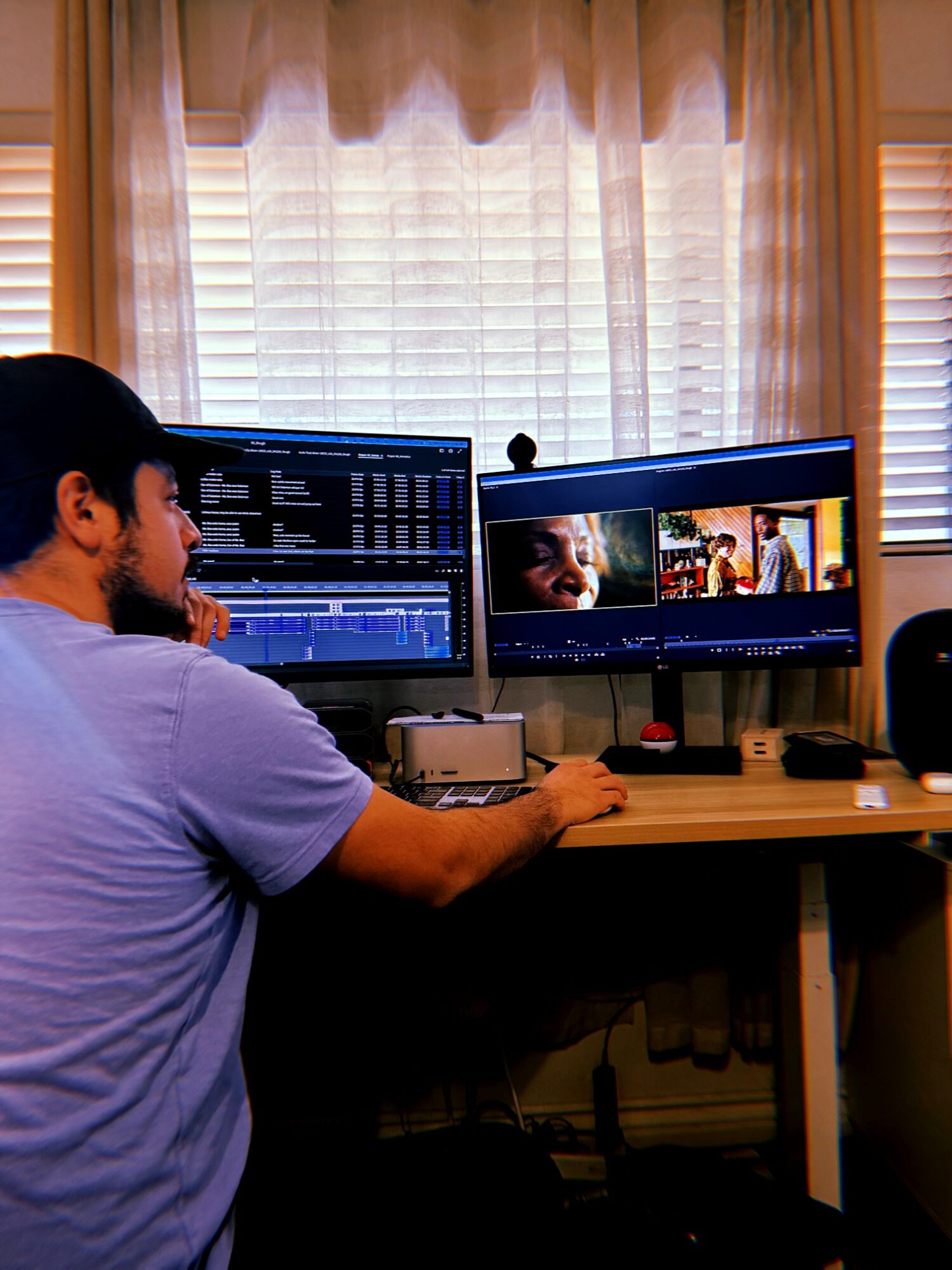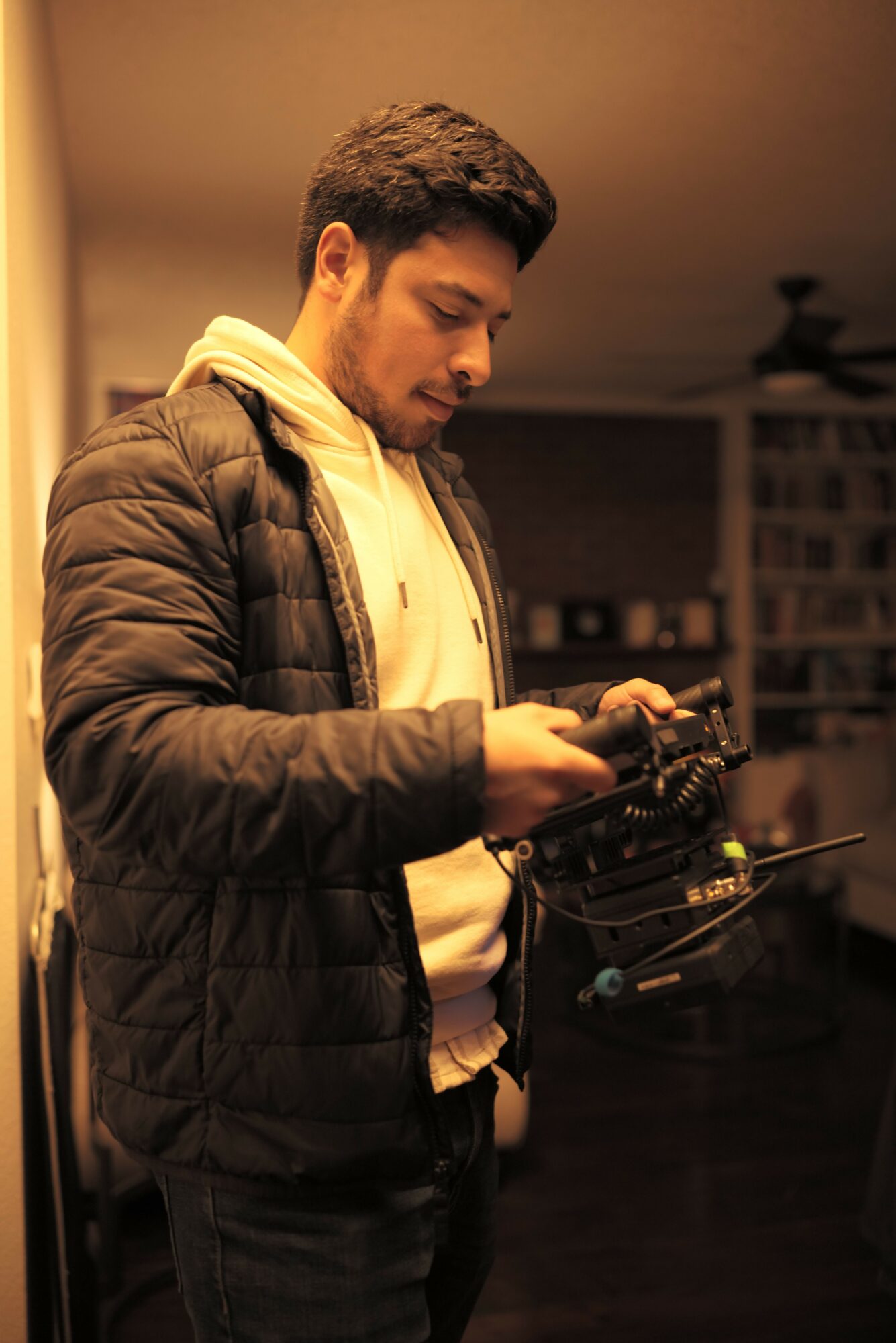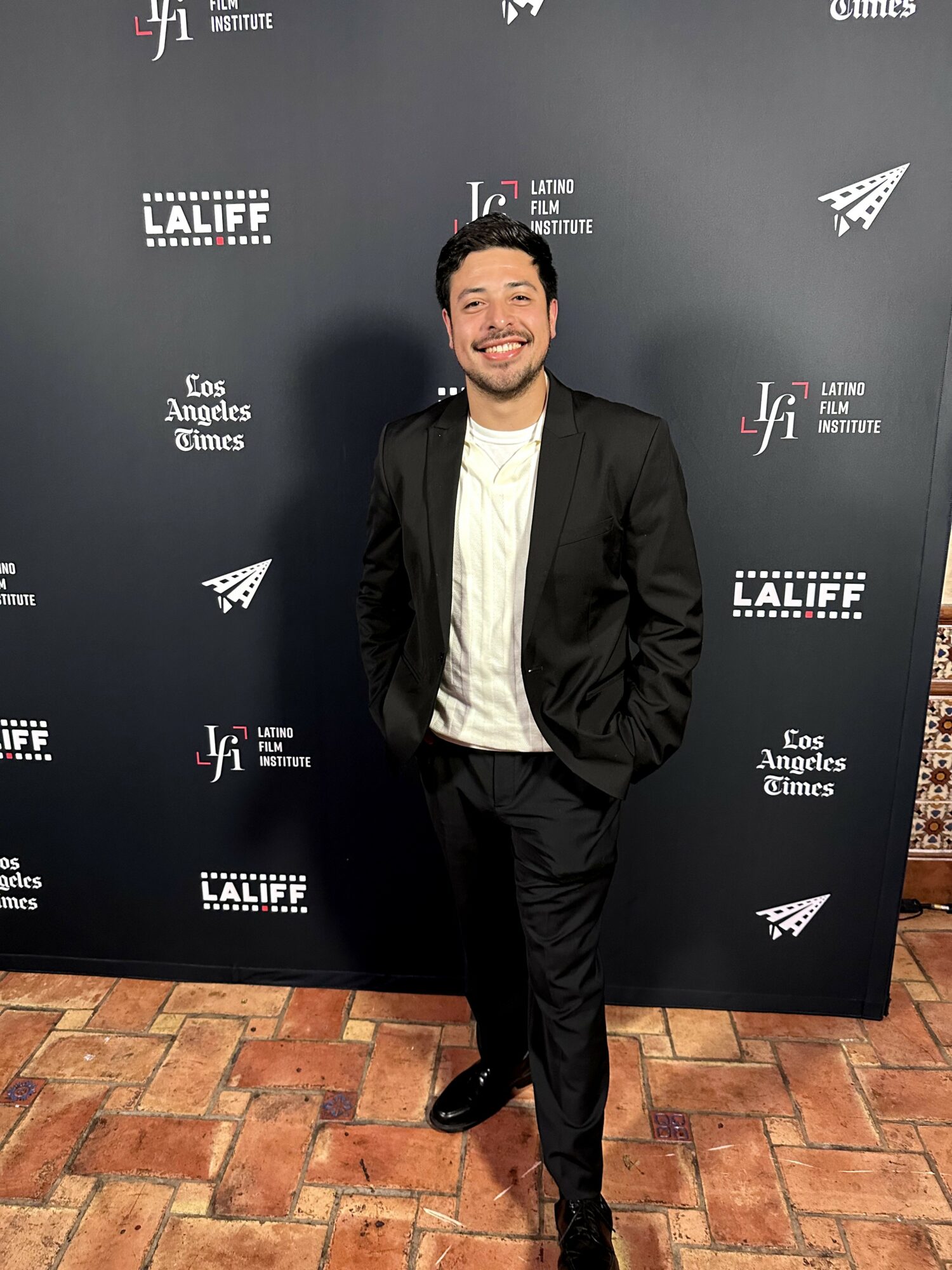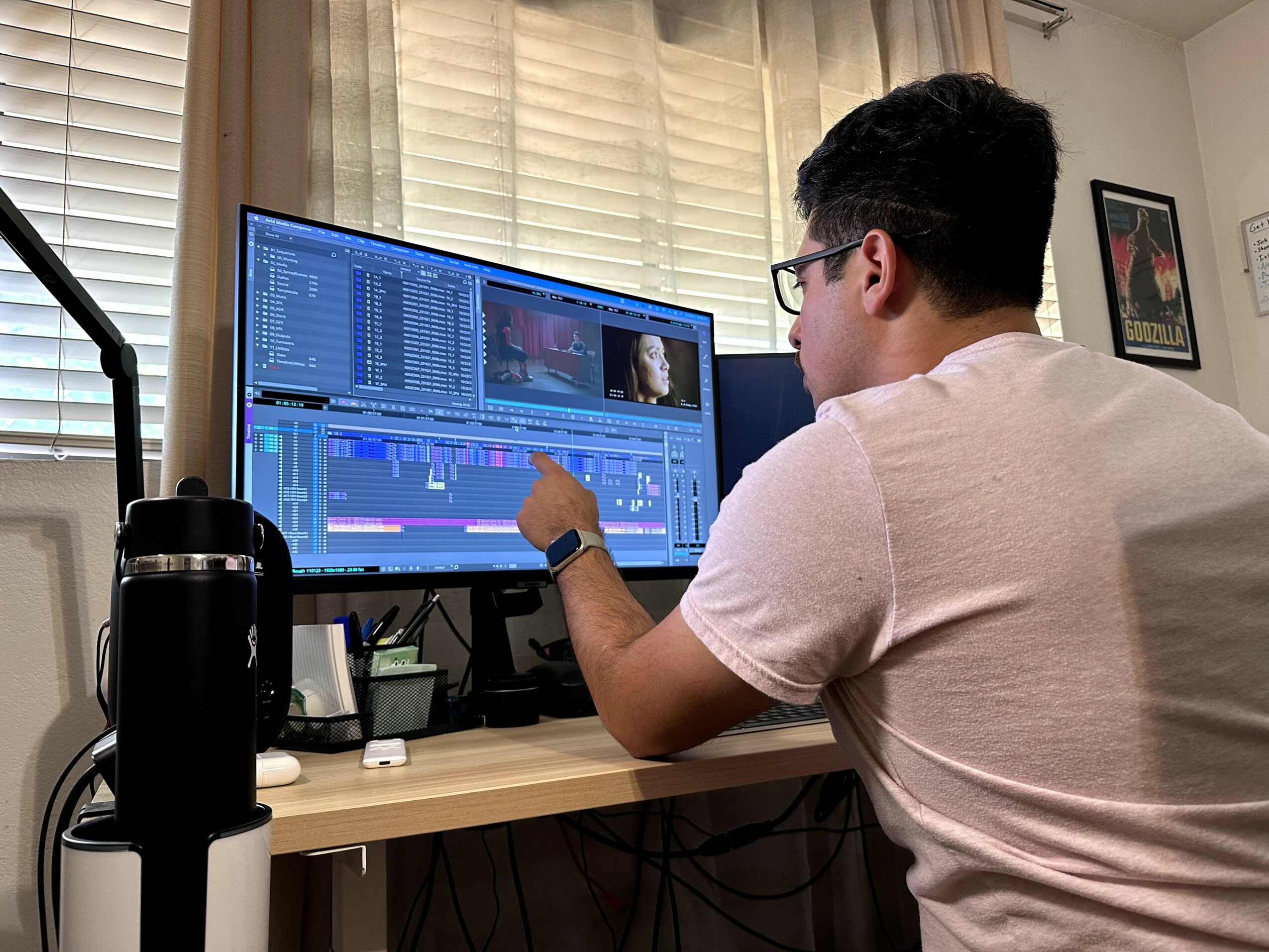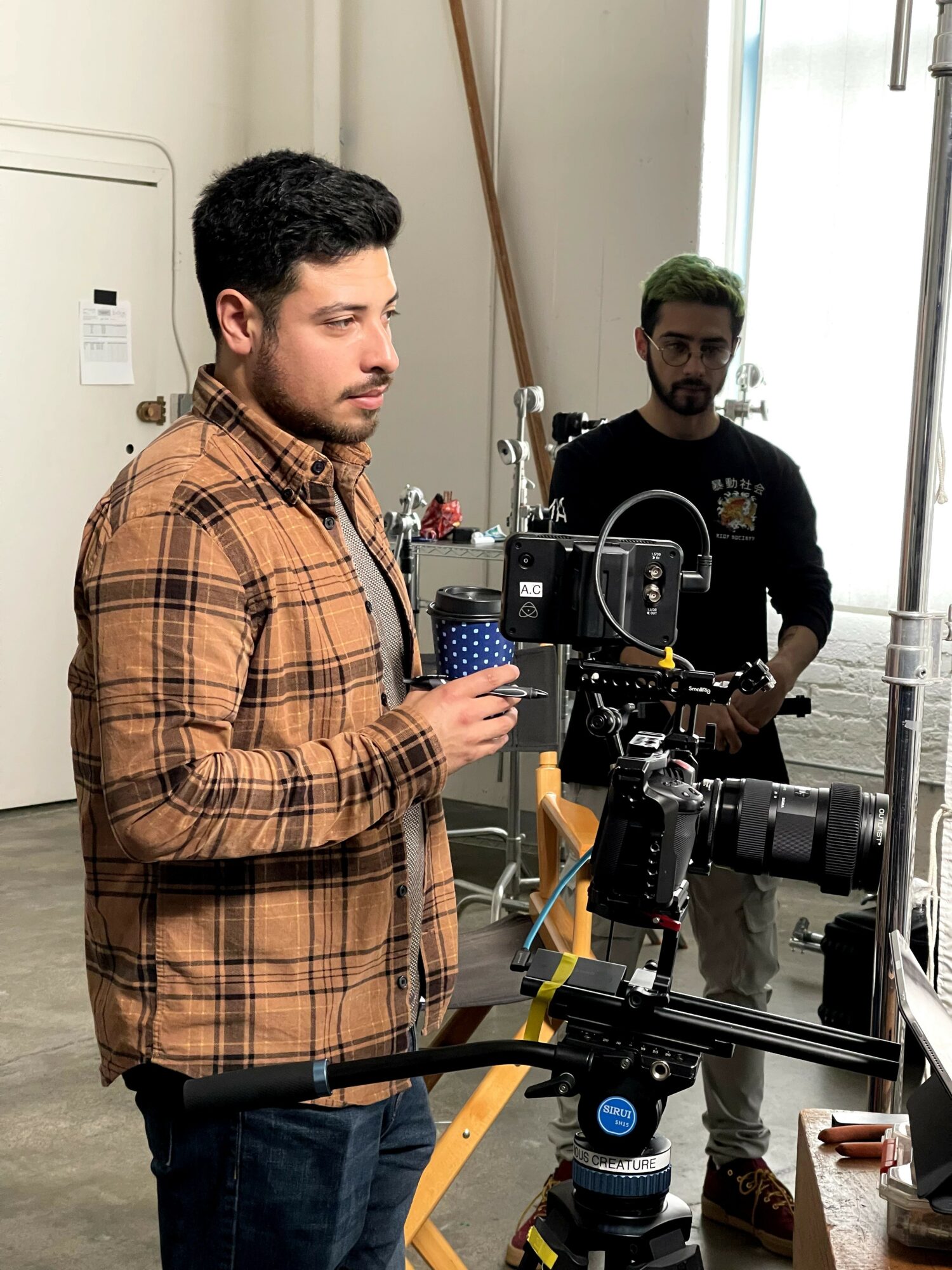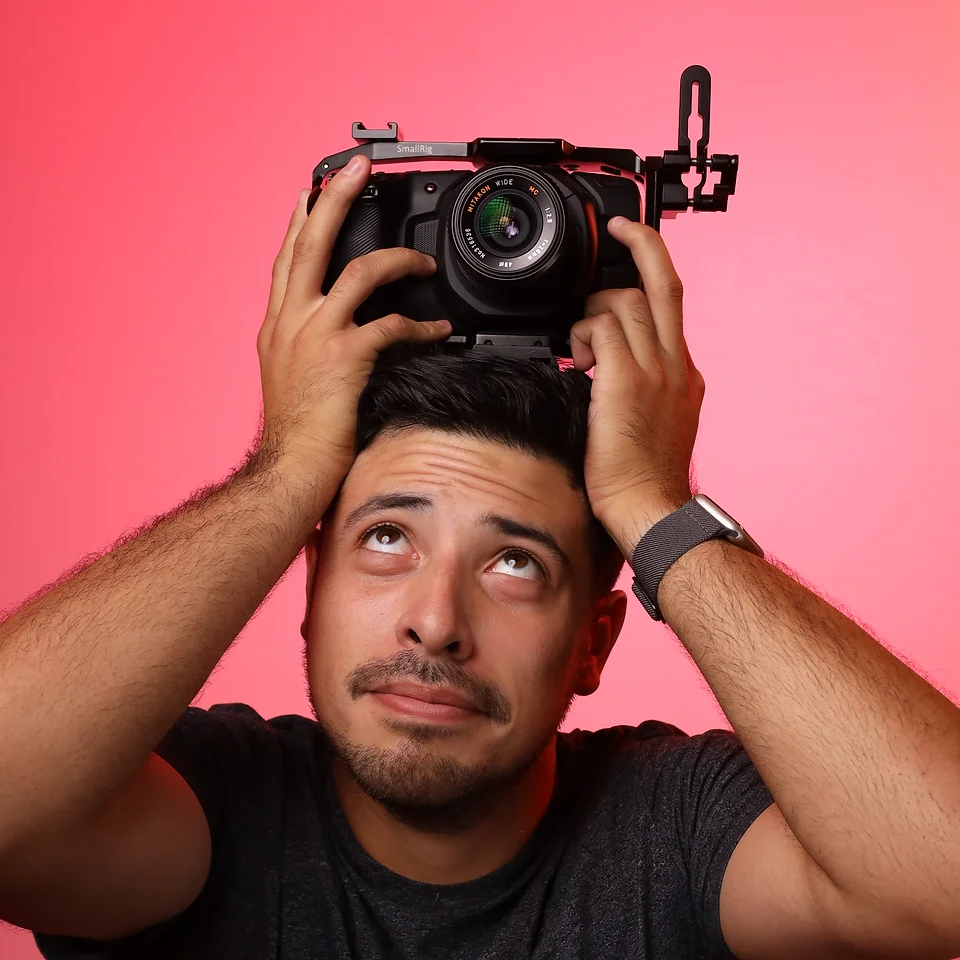

Today we’d like to introduce you to Alexander Gonzalez.
Alright, so thank you so much for sharing your story and insight with our readers. To kick things off, can you tell us a bit about how you got started?
I’m originally from the Bay Area, Redwood City and Menlo Park, and my path into filmmaking really started with a childhood obsession with Godzilla. I used to make stop-motion movies with my toy collection, not knowing what I was doing but figuring it out as I went. I taught myself how to use After Effects and Premiere Pro early on, and that curiosity and drive have guided me ever since.
Growing up, I often felt like an outsider, a Mexican American kid who was sometimes labeled as “whitewashed.” I didn’t always feel like I belonged, but filmmaking became a place where I could fully express myself and embrace the parts of me that felt out of place elsewhere.
I studied cinema at San Francisco State University, where I learned how to tell compelling stories despite real-world limitations, a skill that’s proven essential in my work. I gravitated toward post-production, specifically editing, and have since built my career as an assistant editor, working with companies like MasterClass, Amazon Studios, and Nike.
I joined the Local 700 roster over two years ago, and this year, I finally had the opportunity to work on my first union feature, a film starring Britt Lower (Severance). It’s been an exciting and humbling experience and a reminder that this career takes time and persistence.
Most recently, I wrapped up an incredible opportunity with Issa Rae’s Find Your People Program through ColorCreative, where I served as editor on a short film alongside a team of talented and generous filmmakers. It was a collaborative, creatively fulfilling experience that I hope leads to even more meaningful projects down the line.
My long-term goal is to become a full-time editor, ideally in animation. I genuinely enjoy editing animatics, and animation feels like a space where creativity and stability can coexist in a really fulfilling way. At the same time, I’ve been steadily building my voice as a director. One of my shorts even screened at NALIP in 2019, and I’ve been directing small projects ever since. I have an ambitious new passion project lined up that I’m really excited about, it’s a big swing, but I feel confident in the vision and in my ability to pull it off the right way.
It’s been a winding path, coming from outside of L.A. and navigating the industry one step at a time, but I’ve stayed committed to the work, and I’m proud of how far I’ve come. I’m still growing, still learning, and excited for what’s ahead.
Can you talk to us a bit about the challenges and lessons you’ve learned along the way. Looking back would you say it’s been easy or smooth in retrospect?
I wish it had been a smooth road, but nothing worth fighting for ever is. There have definitely been a lot of ups and downs. One of the more recent challenges was supporting the entertainment strikes. As a strong union supporter, I fully believed in the cause, but at the same time, it was tough knowing that it meant I wouldn’t be able to find work for a while. That tension between standing in solidarity and dealing with financial uncertainty was very real.
Another major challenge has been making intentional career choices that align with my long-term goals, even when they weren’t the most comfortable. I’ve turned down high-paying jobs that could’ve given me financial stability, but they didn’t contribute to the path I wanted which was working toward becoming an editor in Local 700. I knew that taking certain jobs might distract me or keep me from earning the hours I needed to join the union, so instead, I took lower-paying roles that kept me aligned with my goal. It’s a trade-off, and it hasn’t been easy, but I’ve always felt grounded in the bigger picture.
On top of that, there was the challenge of learning Avid Media Composer. Coming from programs like Premiere Pro and DaVinci Resolve, switching to Avid, which can feel clunkier and more old-school, was frustrating at times. But I knew it was essential for working in union projects, so I put in the time, and now I feel confident using it. That’s something I’m genuinely proud of.
Thanks – so what else should our readers know about your work and what you’re currently focused on?
Right now, I specialize in post-production. By day, I work as an assistant editor, with my next big goal being to transition into a full-time editor role. But that hasn’t stopped me from cutting short films and other fun media projects on the side. I also direct and edit my own work, so I’m always staying creatively active outside of my day job.
I’m especially passionate about using visual effects and editing to tell whimsical, fantastical, and often comedic stories. That’s kind of my whole personality, I lean into the weird, the imaginative, and the light-hearted because I genuinely want people to feel less alone in the world. Growing up, there were times I felt isolated, and now I want the work I create to be comforting, welcoming, and full of heart.
What sets me apart is that intention: I want everything I touch to be a little reminder that there’s magic and humor in everyday life. I also bring a relentless dedication to this path. A lot of people dream of working in film, but I’ve made the tough choices and sacrifices to keep that dream alive, even when it hasn’t been easy. I’ve worked hard, taken the long way when I had to, and I keep showing up because there’s something inside me that won’t let go of this love for storytelling.
And honestly, I’m kind of a certified geek, which comes in handy when you love fantasy and world-building as much as I do. Whether I’m editing someone else’s work or directing my own, I always bring that same care, passion, and creative curiosity to the table.
Risk taking is a topic that people have widely differing views on – we’d love to hear your thoughts.
I’m really glad this question came up because I feel passionate about risk-taking, I honestly don’t think you can build a creative career without it. In my experience, opportunities don’t just walk up to you. Maybe they do for a lucky few, but even then, you have to be ready to meet them with the right skills and mindset. For most of us, you have to go after what you want, and that usually means taking a risk.
For me, a lot of the biggest risks have come in the form of saying no. I’ve turned down jobs that might’ve offered stability or a clear paycheck, simply because they didn’t align with the bigger picture of where I wanted to go. One example that stands out is when I was interning at Disney. I was offered a potential opportunity at one of their editing houses, but it was in marketing, which wasn’t the direction I wanted to take. I wanted to go down the path of narrative and long-form storytelling. Turning it down was scary, but because of that choice, I ended up working at MasterClass instead. That role gave me the experience I needed and helped me earn the hours to join the union. It was the right move, even if it didn’t feel like the “safe” one at the time.
There has been plenty of moments like that throughout my career, and I’ve learned that risk isn’t about recklessness, it’s about clarity. Knowing who you want to be, where you want to go, and making choices that support that vision, even when they’re uncomfortable. For me, risk is a necessary part of growth. It’s what separates staying stuck from moving forward. Even if you fail while doing so, remember what Yoda said: “The greatest teacher, failure is.”
Contact Info:
- Website: https://www.alexander-gonzalez.com/
- Instagram: https://www.instagram.com/alexgedit/?hl=en
- LinkedIn: https://www.linkedin.com/in/alexander-gonzalez-028660140/
